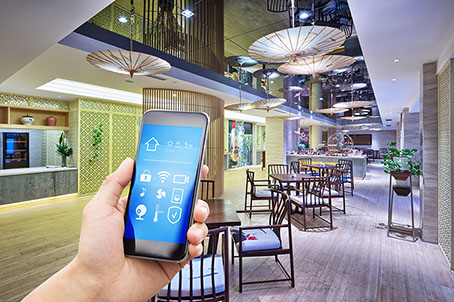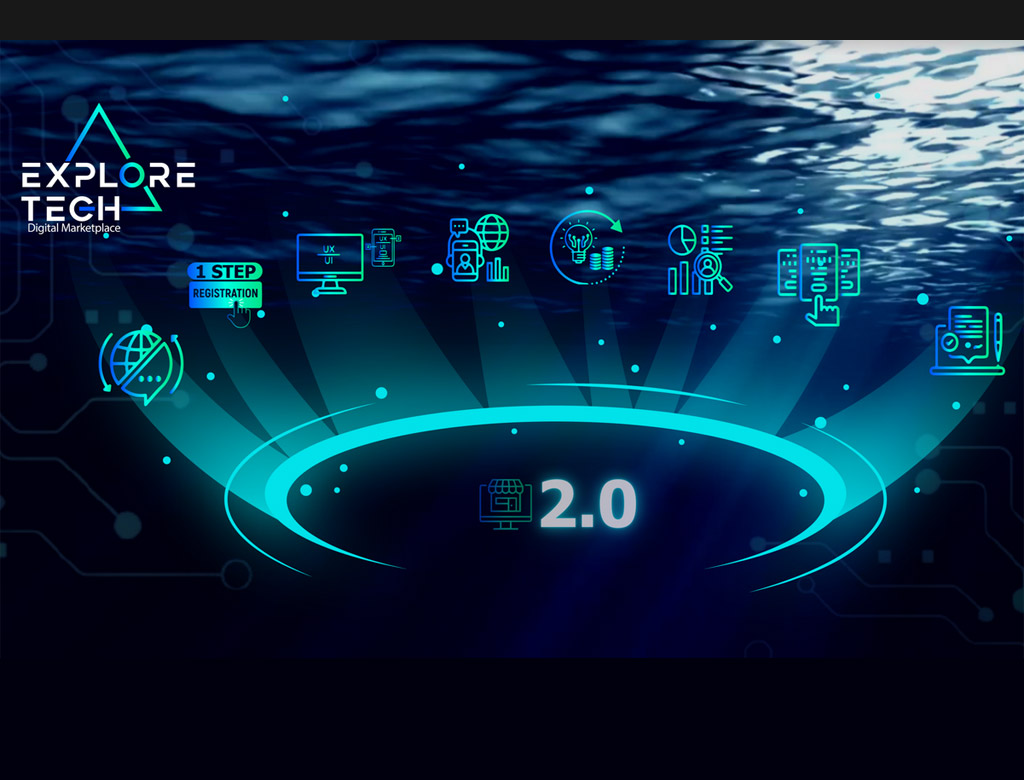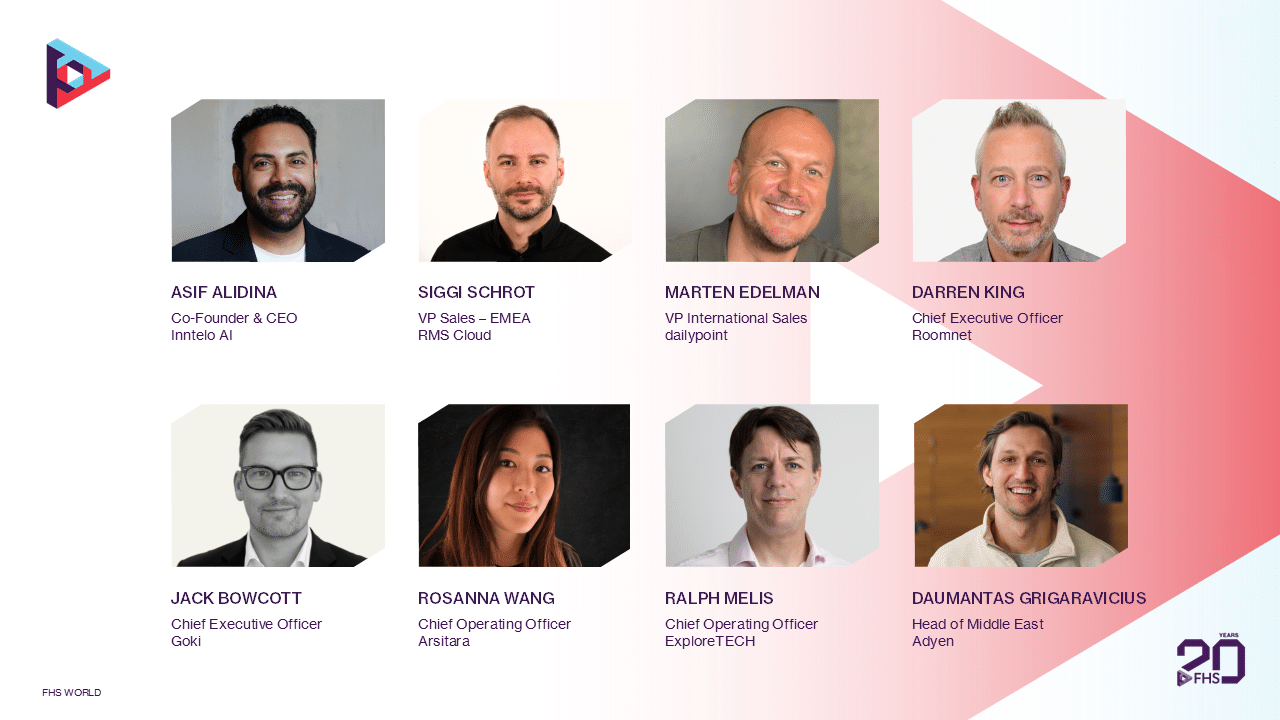

As global economies are recovering from the effects of the coronavirus pandemic, the crisis has created some permanent effects on the hospitality and food service industries, which were among the most devastated sectors. Accordingly, adopting new ways of working and delivering a more personalized, seamless, and sustainable guest experience had become ever-more crucial.
Businesses unable to adapt quickly to new technologies face the risk of falling behind the competition. For this reason, it is essential for management teams within the industry to keep up to date with the latest hospitality technology trends.
By identifying and implementing the right technologies, hotels can gain a competitive advantage by delivering a premium service and exceeding guest expectations.
Of course, there are multiple benefits to embracing digital transformation within the hospitality and food service industry, beyond customer service and elevated guest experience. Technology can also help hotels enhance operational accuracy while decreasing overhead expenses by automating labor-intensive processes, eliminating the possibility of human error.
However, the technological transition also brings several challenges that hoteliers and food service organizations must address.
Integration of Hospitality Technology Systems
Hospitality technology integration involves connecting all hotel systems, applications, and devices to ensure a better data flow and processes. For many hotels, the property management system (PMS) serves as a central hub to which core systems like the booking engine, central reservations system (CRS), and point of sales (POS) system are connected.
Personalization is a significant part of the guest experience. Making sure that technology systems are integrated and communicating with one another makes it much easier to create a seamless, more personalized guest experience.
Because technology keeps advancing so quickly, it is particularly challenging to keep up with all of the changes that are taking place in any industry. Consequently, many hotels, even those connected to major brands, still run on legacy systems.
The trouble with these older systems is that they cannot communicate or sync well with newer systems and technologies. Thus, as new tech solutions are continually introduced, it becomes even harder and more complicated for hotel operators and staff to use the various technologies effectively.
Data Management
Collecting guest data is essential to the success of any modern hotel. Knowing and understanding guests is critical in predicting behavior, such as future visits, individual requirements, tastes, and demands, allowing hotels to deliver a unique experience to each guest.
New technology applications within the hospitality and food service industry gather data through various mediums, such as guest-facing systems, smart devices connected to top hotel networks, and satisfaction surveys.
To succeed, modern hotels must invest in technologies capable of profiling guests through smart devices and collecting and analyzing data from multiple sources to ensure personalized customer service.
As data grows within databases, concerns over data management, such as authorization for data access and network security, are sure to arise. Hotel management can only address these concerns through leading-edge back office technology infrastructures.
Security & Privacy
Hotels must track guest preferences, location information, and activity when delivering highly personalized services, leading to guest data storage and protection problems.
For this reason, hospitality technology and software must ensure that all digital interactions with guests are reinforced through robust security tech and privacy rules.
Hotel networks and databases should also be equipped with the solutions necessary to secure in-room technology, guest devices, and all smart devices that have access to the network.
The vast majority of hotels are limited in the knowledge and expertise they carry on the subject of data security and privacy. For this reason, it is a good idea to consult with hospitality technology specialists that can offer suggestions, insights, and security framework designs.
Service digitization & response
Effective and efficient hospitality technology must be responsive and instantly accommodate guest requests. The responsiveness of service delivery has been enhanced significantly by the digitization of services like housekeeping, room service, and laundry.
By encouraging the use of guest-facing systems and mobility software, time losses are eliminated, and the need for human interaction is reduced.
In addition, technology systems that are optimized and synchronized leave few gaps when carrying out guest requests. Many technological innovations available to the hospitality and food service industry can fulfill guest requests quicker than hotel staff, ensuring a seamless guest experience.
Enhanced responsiveness in hospitality software is also necessary for renovations and maintenance tasks, as delayed repairs, faulty room technology, and slow maintenance activities can lead to revenue losses.
Hotel properties under professional technology management care and those with Artificial Intelligence- (A.I.) powered reporting systems can quickly respond to repair and maintenance tasks.
Automation technology, including sensors and mini-computers, is being actively implemented to identify issues as they occur.
A responsive hotel tech infrastructure demands more substantial resources, more straightforward network mapping, and seamless synchronization with hotel back office systems.
Conclusion
Digital transformation may be amongst the most significant and rewarding transitions affecting the hospitality and food service industries. Still, it comes with numerous challenges that often lead to uncertainty, lack of confidence, and reluctance to adopt new technologies.
Adopting new and disruptive technologies is crucial for business continuity, promoting healthy competition within the industry, and further driving innovation. Still, hoteliers must be prepared to face and overcome technology implementation challenges within their assets and properties.






